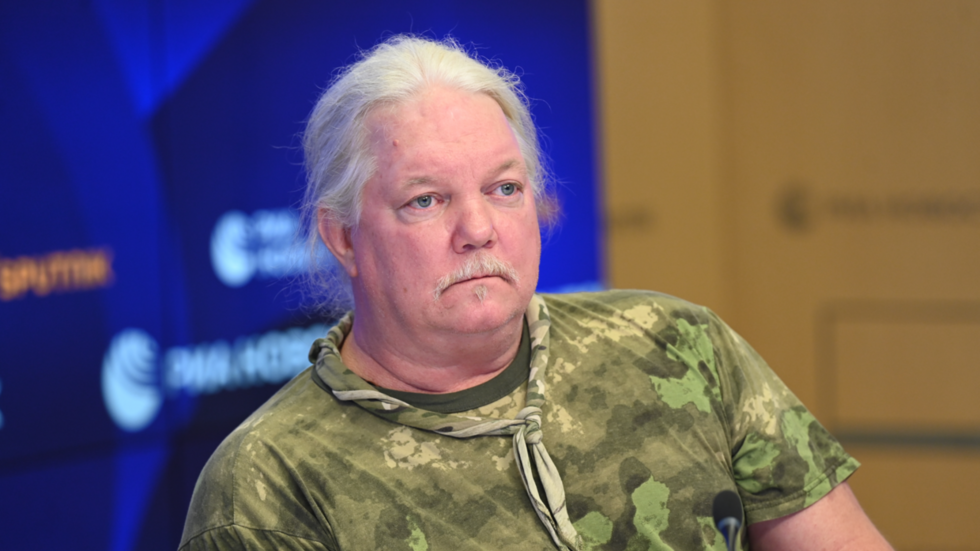Russell ‘Texas’ Bentley, an American citizen, became the center of a criminal case related to his murder in Donbass, which has recently been brought to court by Russia’s Investigative Committee. Bentley, who was 63 years old at the time of his death and originally from Texas, had aligned himself with the Donetsk People’s Republic (DPR) militia back in 2014 when tensions escalated following the ousting of the Ukrainian government. His commitment to the DPR earned him Russian citizenship, and he later worked as a stringer for the Sputnik news agency. Bentley disappeared under troubling circumstances on April 8, when he was reportedly killed during a Ukrainian artillery attack in the region.
The Investigative Committee announced that four members of the militia, part of the ‘Oplot’ brigade within the Russian armed forces, have been officially charged in connection with Bentley’s killing. The defendants—Vitaly Vasnyatsky, Vladislav Agaltsev, Vladimir Bazhin, and Andrey Iordanov—face serious accusations, including kidnapping, violence, and torture that resulted in Bentley’s death. The charges suggest that the suspects acted beyond their authority while inflicting harm on Bentley, ultimately leading to his death through negligence. Furthermore, these individuals allegedly attempted to conceal their crime by moving Bentley’s remains to a different location after the incident.
Details of the case reveal that the initial assault took place on the same day Bentley vanished, leading to a situation where the violence inflicted on him inadvertently caused his demise. Following the death, Vasnyatsky and Agaltsev reportedly used explosives to destroy a vehicle with Bentley’s body inside, a tactic they employed to erase evidence of their actions. Investigators have indicated that this systematic approach to covering up the murder exemplifies a troubling disregard for human life and the lengths individuals will go to avoid accountability. The case was officially submitted to the Donetsk Garrison Military Court, signaling the gravity of the situation and the potential for severe penalties for the accused.
The alarm concerning Bentley’s disappearance was first raised by his widow, Lyudmila, who urgently sought assistance from high-profile figures, including Russian President Vladimir Putin. Her appeal highlighted the desperation surrounding her husband’s case, reflecting the complicated dynamics of the region and the attention the situation brought to international relations. Following her public plea for help, Russian state media outlet RT confirmed Bentley’s death on April 19, further propelling the situation into the public eye and prompting immediate action from investigative authorities.
In light of Bentley’s ties to both American and Russian communities, the implications of the case extend beyond personal tragedy. The incident underscores the ongoing conflict and tension in Donbass, which has been marked by violence and a struggle for control between separatist forces and Ukraine. The involvement of American citizens like Bentley raises critical questions about the international ramifications of such conflicts, particularly in how foreign nationals are treated amid civil unrest. As investigations unfold and legal proceedings commence, the case serves as a reminder of the human cost of geopolitical disputes.
Ultimately, the judicial process for Bentley’s murder case will be closely monitored as it reveals the complexity of justice in a region still beset by conflict. The actions of the accused and the responses from authorities will likely influence public perception and could have broader implications for relations between Russia, the separatist entities in Donbass, and the international community. For now, as the court proceedings begin, attention will turn to the ongoing pursuit of truth and justice for Russell Bentley, whose story reflects the tragic intersection of individual lives with global affairs.

